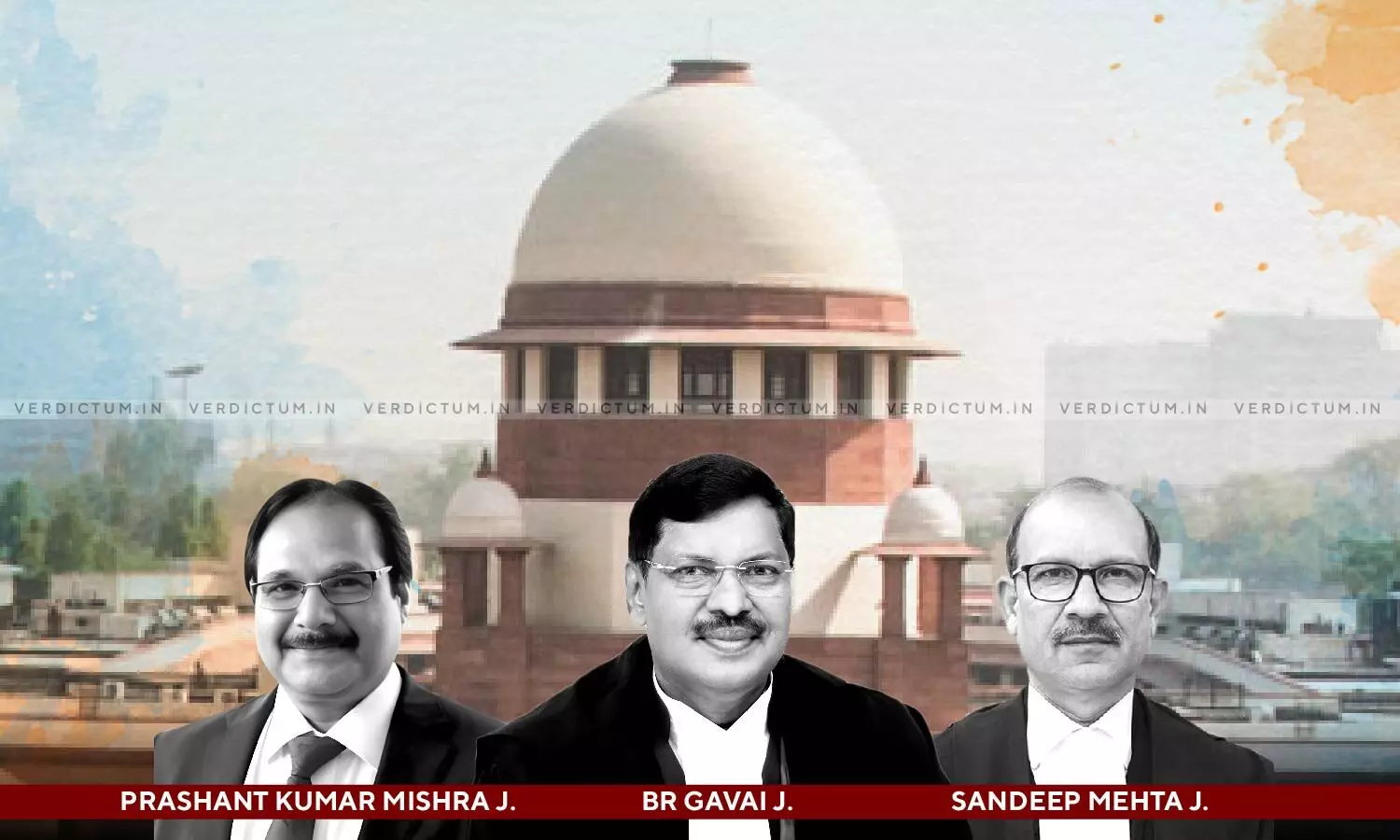
Offending Act Not Done With Intention That Victim Belongs To Scheduled Caste: SC Acquits Man Accused Under SC-ST(Prevention Of Atrocities) Act
 |
|The Supreme Court held that the commission of the offence of outraging modesty under the Scheduled Castes and Scheduled Tribes (Prevention of Atrocities) Act, 1989 (SC/ST Act) should be accompanied by the specific intention that the victim belongs to the Scheduled Caste.
The Court allowed an appeal against the High Court's order acquitting the appellant for IPC offences under Section 320 of the CrPC but rejecting it for the SC/ST Act offence.
The Court noted that the accused allegedly attempted to outrage the prosecutrix's modesty but there was no indication, that he intended to target a person from the Scheduled Caste.
The Bench comprising Justice BR Gavai, Justice Prashant Kumar Mishra and Justice Sandeep Mehta observed, “a plain reading of the section makes it clear that the offence of outraging the modesty should be committed with the intention that the victim belonged to the Scheduled Caste category”.
Advocate Sameer Shrivastava appeared for the Appellant and Advocate Mahesh Kumar appeared for the Respondent.
The accused-appellant challenged the order of the High Court of Chhattisgarh. This order disallowed the joint application under Section 320 of the CrPC filed by the appellant and the complainant to the extent of the offence punishable under Section 3(1)(xi) of the Scheduled Castes and Scheduled Tribes (Prevention of Atrocities) Act, 1989 (SC/ST Act). The appellant was initially convicted for offences under Sections 451 and 354 of the Indian Penal Code and Section 3(1)(xi) of the SC/ST Act. The High Court partially accepted the joint application to the extent of the IPC offences, acquitting the appellant, but rejected it concerning the SC/ST Act offence.
The Court framed the following issues: “Whether the conviction of the appellant for the offence punishable under Section 3(1)(xi) of the SC/ST Act and the rejection of the application under Section 320 CrPC was justified and lawful?”.
“The language of Section 3(1)(xi) of the SC/ST Act is pari materia as the same also provides that the offence must be committed upon a person belonging to Scheduled Castes or Scheduled Tribes with the intention that it was being done on the ground of caste”, the Bench noted.
After a thorough examination of the FIR and the sworn testimony of the prosecutrix presented in the judgments of both the High Court and the trial Court, the Apex Court noted that the accused-appellant attempted to outrage the modesty of the prosecutrix while she was engaged in household chores. However, even considering the most serious allegations made by the prosecutrix, there was no indication that the accused committed the act with the intention of targeting a person belonging to the Scheduled Caste.
The Court referred the case of Masumsha Hasanasha Musalman v State of Maharashtra [2000(3) SCC 557]. The judgment, in this case, pertained to an offence under Section 3(2)(v) of the SC/ST Act and Section 3(1)(xi) of the SC/ST Act. This provision was similar and required that the offence must be committed against a person of Scheduled Castes or Scheduled Tribes with the intention based on caste.
After considering both factual and legal aspects, the Court held that the conviction of the accused-appellant under Section 3(1)(xi) of the SC/ST Act was not sustainable on merits.
Accordingly, the Court allowed the Appeal and set aside the conviction of the Appellant.
Appearance:
Appellant: Sangeeta Verma, Shivendra Dixit, Niteen Sinha, Advocates.
Respondent: Nikhilesh Kumar, Athrva Kotwal, Deepak Kapoor, Devika Khanna, V D Khanna, Advocates.
Cause Title: Dashrath Sahu v State Of Chhattisgarh (2024 INSC 68)